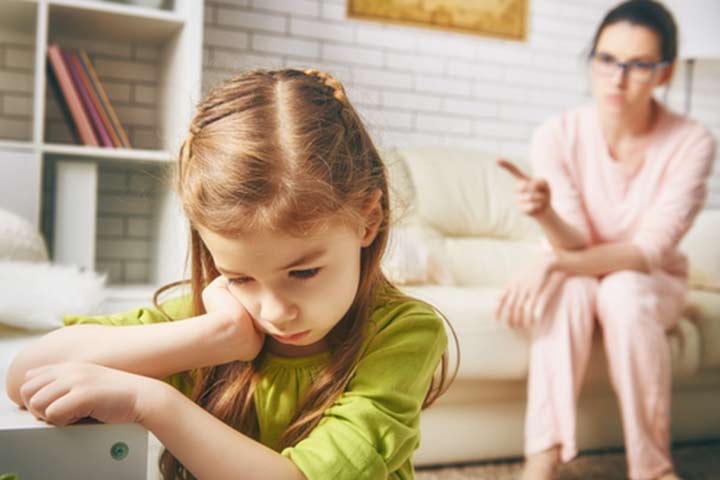
Image: Shutterstock
Growing up facing a few challenges is part of being a child and would definitely help build mental and emotional strength. However, the way kids view themselves and the world around them depends heavily on how they are treated by their loved ones. As parents, we often focus only on our children’s physical health while being oblivious to certain events that may negatively affect their mental well-being. It is important to note that not every abuse is physical in nature but can still be as pernicious, if not more. Below we have listed out the different things that can cause trauma during childhood, which may not be physical in nature.
1. Absence Of Emotional Support
Image: Shutterstock
Children need a lot of love and attention while growing up. Having a supportive family helps them boost up their confidence, which in turn shapes their personality. Lack of a comfortable environment where they can truly express their feelings and concerns can have a long-lasting impact on their mental and emotional growth.
Kids can be very sensitive. If they cannot rely on you for emotional support, it could make them feel helpless and traumatized. So make sure you do not trivialize their feelings and listen to them whenever they need you.
2. Feeling Alienated When In Need
Image: Shutterstock
Every child turns to their parents for support and encouragement. They always expect you to have their backs regardless of what the situation is. However, not having you at times when they expect you to be by their side can cause them to feel lonely and alienated. It can hinder their confidence and affect their emotional and mental well-being from a very young age. This further down the road could also result in the development of trust issues for some children. It is important to let your child make a few mistakes and learn to figure certain things out by themselves. However, you should always be by their side to guide them through the complexities of life, letting them know they have a support system when needed.
3. Feeling That They Are Not A Priority
Image: Shutterstock
While it is perfectly alright to take care of yourself, it is crucial that you make your child your priority as well. As a parent, it should always be your responsibility to take care of your kid’s needs until they are capable of taking care of themselves. Children are very sensitive. Having the impression that their parents don’t care about them or their requirements can have a negative impact on their emotional health. It could also affect your relationship with your child. So it is important to let them know that they will always be a priority, and they can count on you when needed.
4. Being Judged For Who They Are
Image: Shutterstock
Every child is unique in their own way. And they all have their unique personalities and interests. Comparing your kid with others may not seem that big of a deal to you, but it can make your child question their individuality. Instead, you could guide them to hone their strengths and talents to shape their personality. As parents, make sure you provide an environment for your kids to freely express themselves without being judged or ridiculed. While you must definitely guide them towards the right path, make sure you don’t curb their right to think freely without imposing your beliefs on them.
5. The Pressure Of Competition And Proving Themselves
Image: Shutterstock
Having a healthy competition always helps children improve their capability and skills. However, what we often see is kids getting burdened by their parents’ and teachers’ expectations of them. This ends up becoming counterproductive as the kid feels enormous pressure to prove themselves in front of others. Oftentimes they also start losing interest in whatever it is that they are pursuing as it starts becoming more of a chore and less of a passion. So parents mustn’t unnecessarily chastise or criticize their children, whether it is academics or other extracurricular activities. Instead, you could try to be more understanding and encourage them to do better.
Raising a kid is a great responsibility. And it is much more than just feeding them and providing a roof over their heads. It is also imperative to create a conducive environment for them to feel loved and respected. Let us know the different ways in which you support your kids in the comments section below.

















